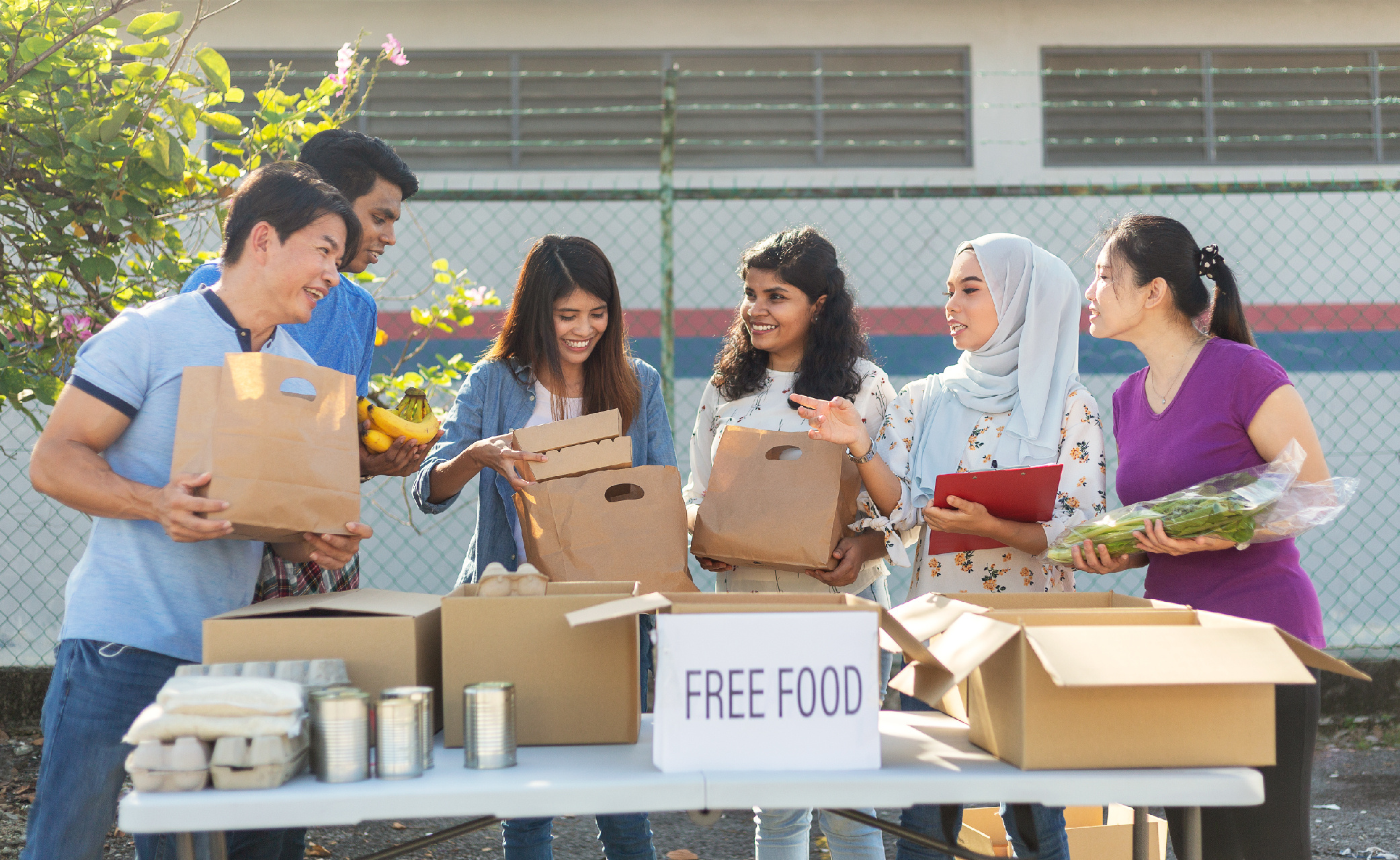Share this
How Blockchain Impacts Trust in Global NGOs in 2024
by Freedom World Team on Oct 24, 2024 5:20:28 PM

The non-profit sector plays a critical role in addressing social challenges and improving lives worldwide, especially in underserved and marginalized communities. However, one of the biggest challenges that NGOs face, whether operating in a remote village or a bustling metropolis, is the need for greater transparency, trust, and accountability. As the world moves deeper into the digital age, blockchain technology has emerged as a promising tool to help non-profits build stronger, more transparent organizations.
But what exactly is blockchain, and how is it helping NGOs globally—particularly those working in regions where technology may not yet be widely adopted? In this article, we’ll break down the basics of blockchain technology and explore how it can create immediate and long-term benefits for non-profits across the globe.

What is Blockchain Technology?
In simple terms, blockchain is a type of technology that allows information to be stored securely and shared among a network of people or organizations. Think of it as a record book that everyone in the network can access. Every time a transaction (such as a donation or an expense) is made, it gets recorded in this ledger. Once a transaction is added, it cannot be changed or tampered with. This ensures that all information remains transparent and trustworthy.
Unlike traditional systems where one organization or person controls the data, blockchain is decentralized. This means no single entity is in charge of the information. Instead, everyone who is part of the network has access to the same data, helping to build trust.

Why Should NGOs Care About Blockchain?
Non-profits often face challenges related to trust and transparency. Donors, supporters, and even beneficiaries sometimes have concerns about how funds are used or whether programs are delivering real impact. Blockchain can help address these issues by offering:
- Transparency: Blockchain makes every transaction or decision visible to everyone in the network. This means that donors, communities, and NGO staff can track the flow of funds and see how they are being used. When everyone can access the same information, it becomes easier to build trust.
- Trust: NGOs rely heavily on trust, particularly when it comes to securing donations or forming partnerships. Blockchain ensures that once data is recorded, it cannot be altered, making it harder for mistakes or misuse to occur. This helps maintain donor confidence and fosters strong, lasting relationships.
- Security: With blockchain, data is highly secure because it is distributed across a network, rather than being stored in a single, vulnerable location. This ensures the safety of sensitive information like donor details, program records, or financial data.

Short-Term Benefits for NGOs
As blockchain technology is still relatively new to the global non-profit sector, it’s important to look at the immediate benefits NGOs can gain from using it.
- Increased Transparency in Operations: Blockchain allows NGOs to record every transaction—whether donations or expenses—in a way that is visible to everyone involved. This can help nonprofits build a solid reputation for openness and honesty about how they use their resources. Even smaller NGOs, regardless of their location, can attract more local and global support by demonstrating their commitment to transparency.
- Boosting Fundraising Efforts: One of the biggest challenges for NGOs is securing consistent funding. Blockchain can make it easier for nonprofits to raise funds, especially through online or international donations. Because blockchain guarantees transparency, donors feel more confident that their money is being used as intended. In the short term, this could lead to increased donations from both local supporters and international funders.
- Building Stronger Communities: Blockchain enables decentralized decision-making, which allows communities to be more involved in the decision-making process. This is especially relevant for NGOs working in remote or underserved areas, where local knowledge is crucial to the success of programs. By involving communities directly in decisions, NGOs can build stronger ties with the people they serve, ultimately improving their impact.
Long-Term Vision for Blockchain and NGOs
While blockchain offers clear short-term advantages, its long-term potential for non-profits is even more transformative. Here are some of the broader benefits NGOs could realize over time:
- Strengthening Partnerships: As NGOs build a reputation for transparency and accountability through blockchain, they can form stronger partnerships with local organizations, international bodies, and corporate sponsors. Transparent operations make it easier to collaborate and attract long-term support from those who value measurable impact.
- Streamlining Audits and Reporting: Many NGOs spend significant time and resources preparing reports for donors, governments, and other stakeholders. Blockchain can streamline this process by automatically tracking all transactions, making it easier to generate accurate reports. This can save valuable time and allow NGOs to focus on their core mission.
- Decentralized Decision-Making: In many traditional NGO structures, decisions are made by a few leaders at the top. However, blockchain encourages a more democratic approach, where decisions can be made collectively by participants in the network. This can help NGOs better align their programs with the needs and priorities of the communities they serve.
- Building Long-Term Trust: The non-profit sector thrives on trust—whether it’s between NGOs and donors, staff, or the communities they serve. Blockchain offers a way to maintain and build this trust over time. By ensuring that all operations are transparent and that information cannot be tampered with, NGOs can create lasting relationships based on honesty and accountability.

Unlocking Impact with Freedom World
Integrating blockchain into the global non-profit sector won’t happen overnight. As this technology is still relatively new, many NGOs are just beginning to explore its potential. However, Freedom World, a leading Web3 community platform, provides essential tools and solutions that enhance transparency, trust, and security—key elements for NGOs aiming to strengthen their impact and foster lasting relationships with donors and communities.
Freedom World plays a pivotal role in this transition by offering a robust platform to address the unique challenges faced by nonprofits. With tailored training and support, Freedom World equips organizations with practical guidance on effectively harnessing blockchain technology, allowing them to navigate its complexities and fully leverage its advantages.
A significant challenge to address is the digital divide between regions. While many NGOs in developed countries may have access to advanced digital tools, those in less technologically advanced areas often face barriers in adopting blockchain. Freedom World tackles this issue by making blockchain accessible and emphasizing core benefits like transparency, trust, and community engagement. This empowering approach enables NGOs to start small and gradually incorporate blockchain into their operations, ultimately enhancing their effectiveness and outreach.
Conclusion
Blockchain technology presents an exciting opportunity for NGOs around the world. While the concept may seem intimidating at first, its ability to create transparent, trustworthy systems has the potential to revolutionize how non-profits operate—both in the short and long term.
With Freedom World as a partner, NGOs can effectively leverage blockchain to build stronger relationships with donors, enhance accountability, and foster meaningful community involvement.
As more non-profits embrace this technology, the future of global non-profit work can be characterized by a foundation of trust, transparency, and impact. If you're curious about how the blockchain-powered Freedom World platform can transform NGO operations—improving trust, transparency, fundraising, and community engagement, click the button below to find out more.
.
Share this
- Freedom World (38)
- Blockchain (13)
- Non-Profit Organization (12)
- Freedom Impact (9)
- Online Communities (9)
- Community (7)
- Freedom World App (7)
- Small Business (5)
- The Scape (5)
- Beginner (3)
- Discover Thailand (3)
- Shared Interest Community (3)
- Education (2)
- Fandom (2)
- Freedom (FDM) token (2)
- Freedom Console (2)
- Content Creators (1)
- Educational (1)
- Events (1)
- Freedom Shards (1)
- Missions (1)
- Online Store (1)
- Social Influence (1)
- campaign (1)

